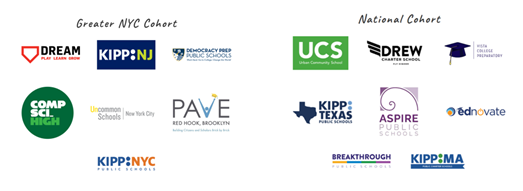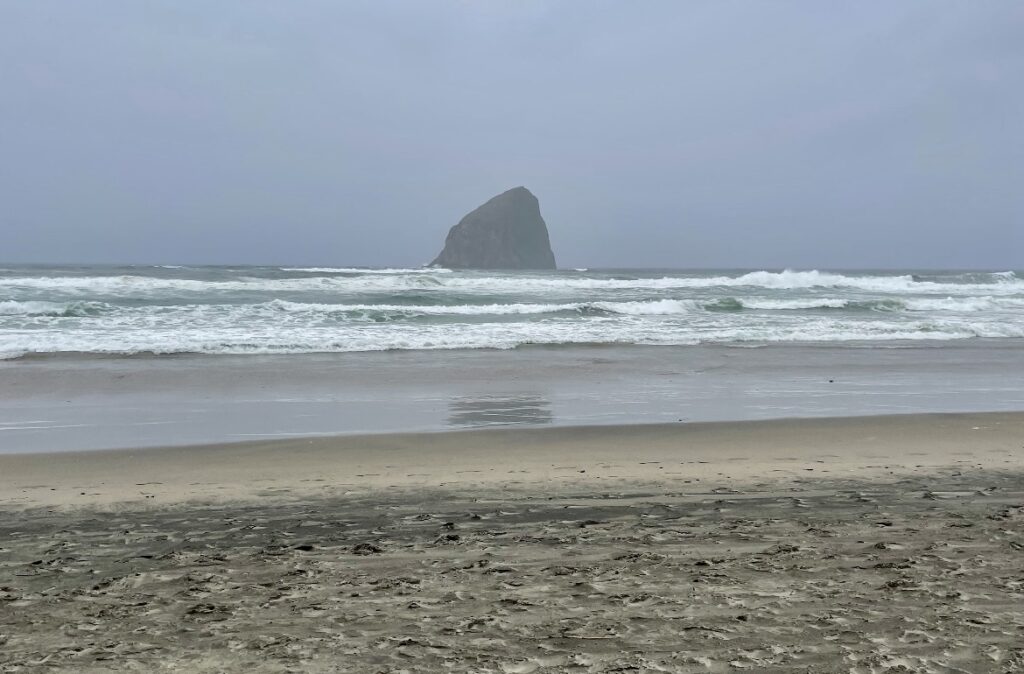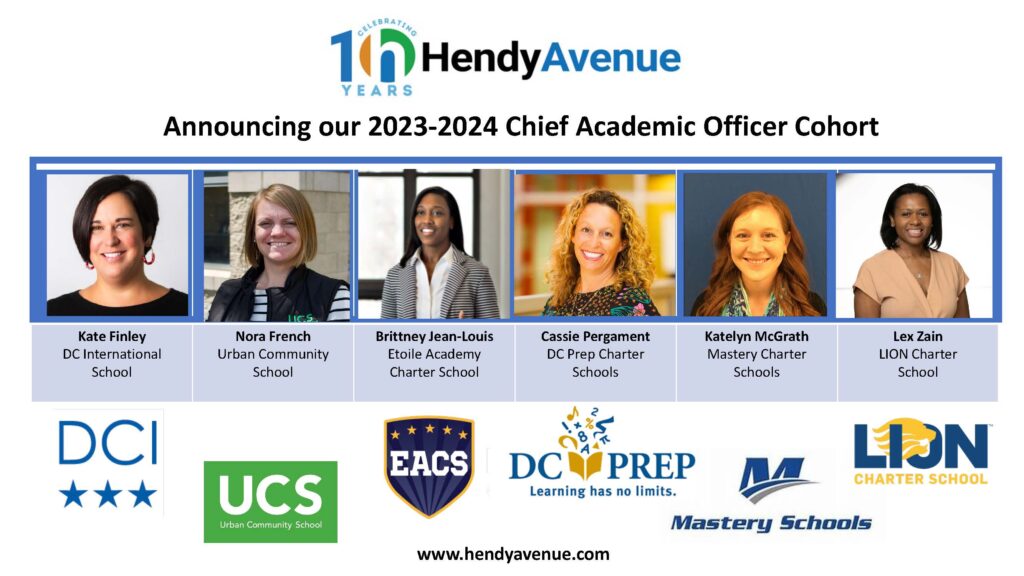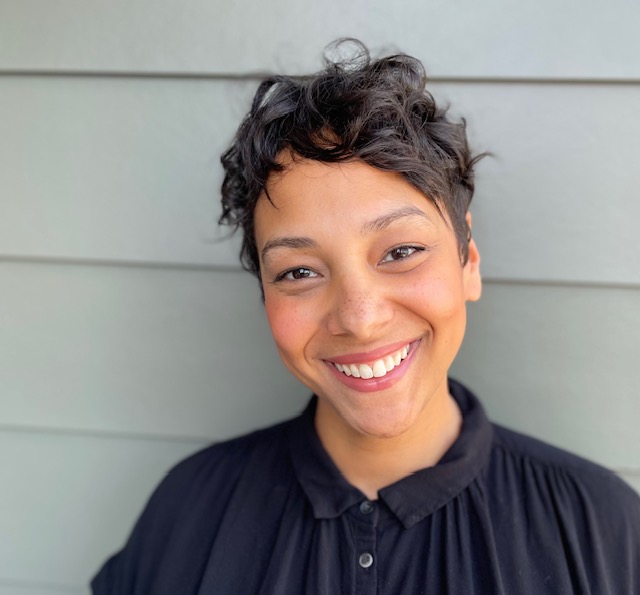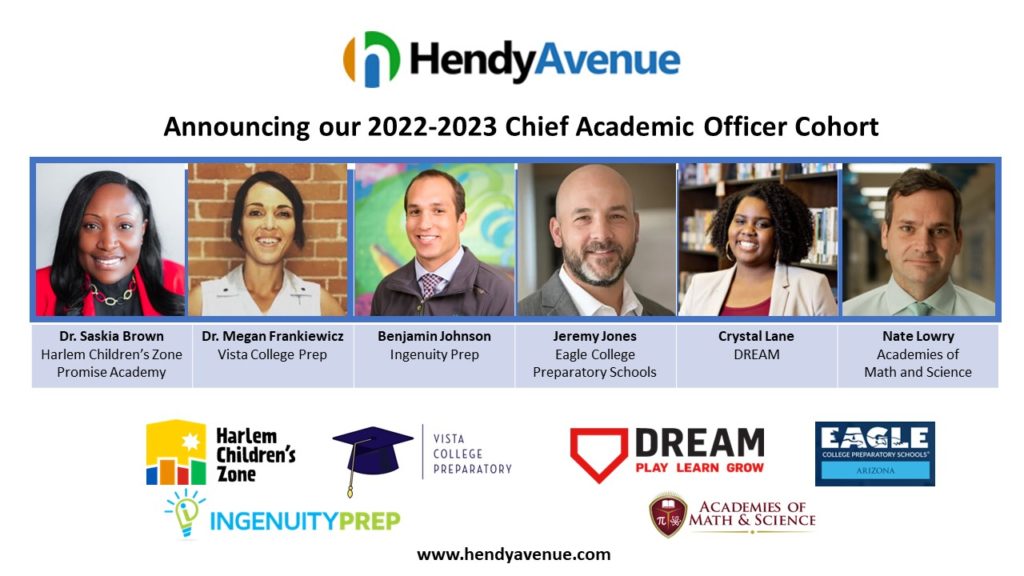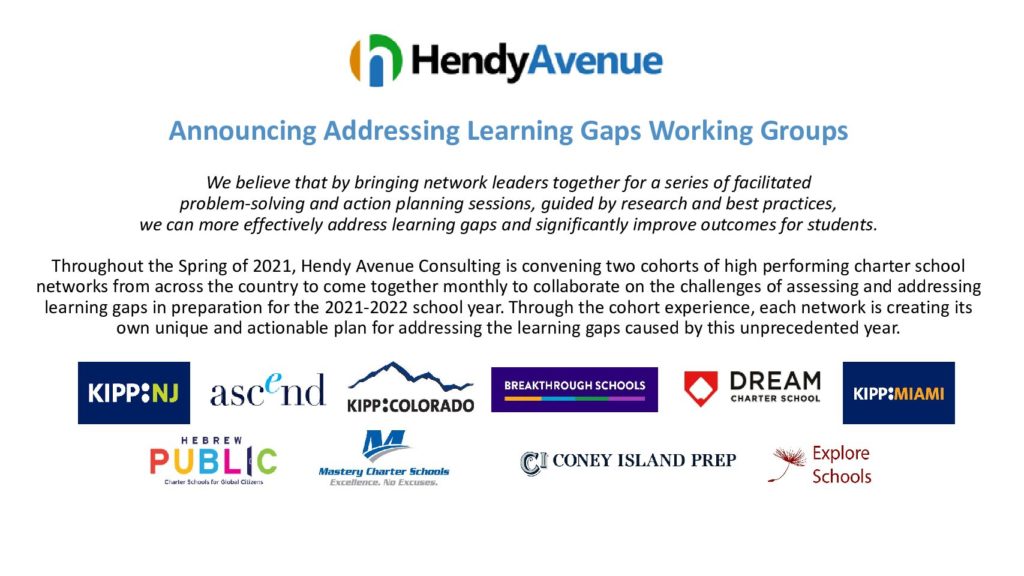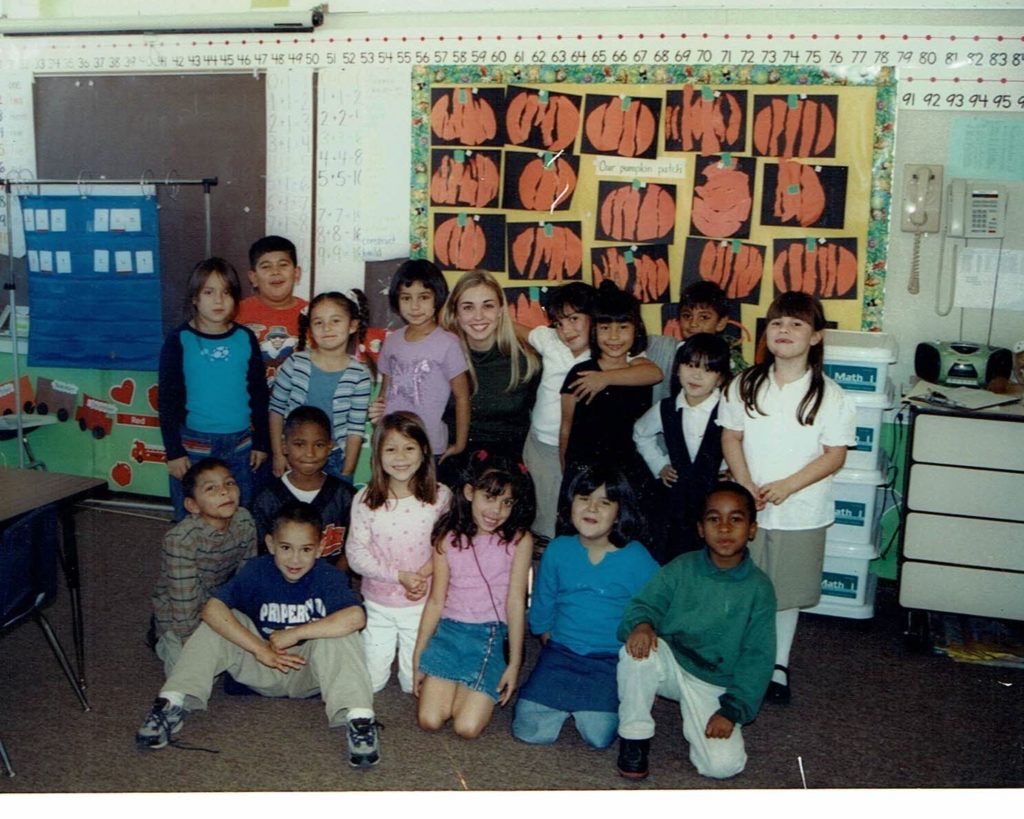Blog
Announcing Alliance of AI for Equity Consortium
A National Alliance Of School Networks To Collaborate On Equity-Driven AI Implementation
Artificial Intelligence has the potential to enhance educator efficacy, efficiency, and sustainability. However, it also has the possibility of exacerbating educational inequity if school systems serving low-income students of color don’t have the support, training, and planning necessary to benefit from this technological advancement. To meet the unique moment, Hendy Avenue Consulting has partnered with Aaron Cuny, founder of the Alliance of AI for Equity.
Hendy is supporting both a Greater NYC cohort and a National cohort where system leaders will:
- Learn about AI
- Complete AI-related organizational planning
- Identify, pilot, and collaborate on implementation of AI use cases
- Review AI products
- Influence AI policy and funding
We are pleased to welcome the following charter school networks into the consortiums:
Greater NYC Cohort:
- Comp Sci High
- Democracy Prep
- DREAM
- KIPP: NJ
- KIPP: NYC
- PAVE
- Uncommon Schools
National Cohort:
- Aspire Public Schools
- Breakthrough Public Schools
- Drew Charter School
- Ednovate
- KIPP: MA
- KIPP: Texas
- Urban Community Schools
- Vista College Prep
Team Spotlight: Meet Rachel Modica-Russell
The Hendy team is so fortunate that the talented Rachel Modica-Russell chose to join the Hendy team in Spring 2023. She is adding so much to our team and the clients with whom she’s partnering. Rachel is currently supporting leaders at Chicago Public Schools, Hebrew Public Schools, and in CMOs navigating new opportunities with AI. We are excited to share Rachel’s spotlight interview so you can learn a bit more about Rachel and the incredible consulting partner, coach, and person she is.
* The photo above is of the Oregon coast, which has quickly become one of Rachel’s favorite day trips since moving back to the west coast.
Why did you choose to work in education?
In the early years of my education, I revered many of my teachers. They were the individuals who not only imparted knowledge and facilitated learning, but also served as role models, shaping my aspirations and values. As I entered my adolescence and became more conscious of the complexities of my intersecting identities, that changed for me quite a bit; I found it increasingly challenging to connect with my teachers, who were predominantly white identifying men and women. This period of my life made me acutely aware of the importance of fostering meaningful connections between educators and students, learning and leading across lines of difference, and ultimately, prompted me to begin volunteering and working with youth who looked like me. I realized that educational institutions should be spaces where students’ identities feel affirmed, valued, and supported across not only curriculum, but also staffing. This realization paired with my natural gravitation toward highly collaborative, mission and relationship-driven work fueled my determination to enter the field of education, and ultimately, stay in the sector.
What’s your favorite part of your job?
My favorite part of my job is walking alongside my clients in the problem identification and solving process. I love knowing that the work I do to support adults in school systems has a direct impact on the learning experiences and outcomes of students. Knowing that the work I do to help to build capacity and people-centric systems and opportunities that can sustain educators translates into higher quality classrooms for students keeps me engaged and motivated.
What’s the problem in education you most want to solve?
The problem in education that I’m most passionate about solving is the herculean challenge of improving the retention of educators while simultaneously elevating teaching as a respected and sustainable profession. In my view, it’s crucial for the infrastructure and systems in education to catch up with the ever-evolving realities of being in the classroom in 2023. So many talented educators leave the profession due to a variety of factors, including burnout, insufficient support, and inadequate resources. To address this, we need to create an environment where teachers feel valued, supported, and as though they’re able to thrive, thus helping them to stay inspired to stay in the profession long-term. Ultimately, I want to support the education sector in embracing forward-thinking, innovative strategies for teacher support and retention that address the demands and challenges of our times.
What’s a favorite book or quote?
What an unfair question 😉 I’ll share one of each from the last year that have struck a chord with me:
- Recent Quote: “Don’t be afraid to speak your truth, even if your voice shakes” – Cleo Wade
- Recent Book: “Intimations” – By Zadie Smith
What do you like to do outside of work?
My wife, Alice, and I love spending time with our lively 4 ½ and 1 ½ year olds, Quincy and Simone. You can find us wandering around our neighborhood in search of dinosaurs, a delicious snack, or collecting treasures for Quincy’s treasure box. I also love a kid-free dinner out at a great restaurant, spending time with my siblings (I’m one of three kids in my family), solo walks, and people watching.
Announcing our 2023-2024 Chief Academic Officer Cohort
The Hendy team is proud to announce the wonderful academic leaders joining our third Chief Academic Officer Cohort:
- Kate Finley – DC International
- Nora French – Urban Community School
- Brittney Jean-Louis – Etoile Academy Charter School
- Cassie Pergament – DC Prep Charter Schools
- Katelyn McGrath – Mastery Charter Schools
- Lex Zain – LION Charter School
The CAO Cohort is once again being led by Erica Murphy and Jonathan McIntosh. Erica is a member of the Hendy team and former academic leader for Ascend and Jonathan is the former CAO of Prospect Schools and an alumnus of our 2021-2022 CAO Cohort.
The CAO Cohort is a place for leaders to learn, reflect, grow, and share. And to do so alongside other leaders who understand the unique challenges faced by academic leaders today. Over the course of 9 facilitated sessions, CAOs exchange resources, solve problems, and build relationships.
You can learn more about our CAO Cohort and all of the Hendy cohort groups on our website.
Kate, Nora, Brittney, Cassie, Katelyn, and Lex – we can’t wait to begin this journey with you!
Welcome Rachel Modica-Russell!
We are absolutely thrilled to announce that the incredibly talented Rachel Modica-Russell has joined the Hendy Avenue Consulting team!
Rachel brings a wealth of experience and expertise to our organization, and we couldn’t be happier to have her on board.
We first met Rachel several years ago when she joined Hendy’s Chief Talent Officer Cohort as the talent leader at Explore Schools. Rachel immediately impressed us with her thoughtful leadership, easy relationship building, ability to truly listen and understand the perspectives of all stakeholders, focus on not just the “what” of change leadership but also the “how”, and her unwavering commitment to doing what’s best for kids.
We are so happy that Rachel has decided to bring her many talents to the Hendy team and our wonderful clients. She is already making our team smarter, stronger, and more fun – and having a positive impact on the school systems we serve.
Please help us to welcome Rachel!
Biography: Rachel Modica-Russell chose to join Hendy not only because she fervently believes in the team’s potential to impact the education sector through their research-based and thoughtful work in talent strategy, strategic planning, leadership development, and programmatic support; she herself has experienced the quality of partnership and depth of expertise present on the Hendy team as a past Chief Talent Officer (CTO) cohort member.
Prior to joining Hendy, Rachel spent five years as the Managing Director of Talent for Explore Schools, a network of eight public charter schools across Brooklyn serving students in K-8th grade. In her role, Rachel shepherded work across all talent functions at Explore Schools, and worked in lockstep with school and network-based leadership on recruitment, Diversity, Equity, Inclusion and Belonging work, staff retention, and people development efforts for their 300+ community members. As Managing Director of Talent at Explore Schools, Rachel spearheaded exciting initiatives and programming such as a staff mentorship program, revising the organization’s approach to compensation, and building a career advancement policy and pathway protocol anchored in more equitable and transparent talent practices.
Rachel could not be any more excited to work alongside other members of the Hendy team to set adults up for success by way of developing smart, strategic people-focused infrastructure and initiatives to drive talent management and people development in schools.
Before working for Explore Schools as Managing Director of Talent, Rachel was a staff member at Uncommon Schools for over 5 years, first as a teacher, and closed out her time with them as Senior Associate Director of Recruitment where she led recruitment for both their Brooklyn and Troy-based regions. Returning to Explore Schools in 2018 was a full-circle moment for Rachel, as Explore is the very organization (Explore Schools) she began her career in education as a Teach for America Corps member and K-2 teacher.
Rachel received her master’s degree in early childhood education from Teacher U – Hunter College and holds undergraduate degrees in Spanish and Family and Human Services from the University of Oregon. After 14 years in Brooklyn, NY, Rachel and her wife and two children made the move back to Oregon to be closer to family. So far, so good :).
Announcing our 2022-2023 Chief Academic Officer Cohort
The Hendy team is proud to announce the talented academic leaders chosen to be a part of the 2022-2023 Chief Academic Officer Cohort:
- Dr. Saskia Brown – Harlem Children’s Zone Promise Academy
- Dr. Megan Frankiewicz – Vista College Prep
- Ben Johnson – Ingenuity Prep
- Jeremy Jones – Eagle College Prep
- Crystal Lane – DREAM
- Nate Lowry – Academies of Math and Science
The CAO Cohort is led by Erica Murphy and Jonathan McIntosh. Erica is a member of the Hendy team and former academic leader for Ascend and Jonathan is the current CAO of Prospect Schools and a member of our 2021-2022 CAO Cohort.
The Cohort is a place for leaders to learn, reflect, grow, and share. And to do so alongside other leaders who understand the unique challenges faced by academic leaders today. Over the course of 9 facilitated sessions, CAOs exchange resources, solve problems, and build relationships.
Our goals are for CAOs to:
- Establish a vision of excellence for the CAO role and its components (e.g., vision setting, team building, instructional management, culture building, data analysis, reflection and action-planning).
- Establish relationships with CAOs nationally – participants become “thought partners” and confidantes for each other, during and post cohort.
- Share resources, perspectives, ideas, thoughts, approaches on all things related to the role.
- Receive structured PD on innovative research and ideas.
We look forward to learning alongside these wonderful leader and can’t wait to kick off our first cohort session on September 22nd!
Stay Conversations in the 2021-2022 SY
Our team has talked before about the importance of Stay Conversations as a crucial tool for staff retention. In the past, Stay Conversations have been about getting teachers and school leaders to return for the following school year. This year is different. This year is not only about retention for next school year, but also retaining people through the current school year. The 2021-2022 school year has been unbelievably hard. Across the country, schools are understaffed. Those who remain are being asked to go above and beyond: covering for vacant positions and for teachers who are absent or quarantined, supporting students who have endured emotional trauma and had significant disruption in their learning, and working in challenging physical conditions while worrying about their own safety. We’ve already seen the “Great Resignation” and unfortunately, it’s likely to get worse before it gets better.
Leaders will not be able to recruit their way to solving this crisis. Instead, leaders will need to focus on retaining the people they do have. One retention strategy is the Stay Conversation. These conversations typically occur before the December holidays as a way to affirm a leader’s desire for their staff to continue at the school the following year and preempt a holiday vacation job search. These conversations are recommended for staff in all roles including teachers, operations, and leadership.
Stay Conversations are a tried and true retention strategy that we encourage school leaders to continue during this unique year, but with a few important revisions to the approach and an updated conversation guide:
- More Frequent Stay Conversations: Rather than just meeting once a year for a Stay Conversation, we recommend meeting 2-3 times this year (including just before the winter break) to ensure that staff are regularly hearing important messages and have a one-on-one opportunity to voice any concerns. This may sound like a lot of time, but a 10 minute conversation is much less time consuming than the time spent covering a vacancy.
- Detailed Tracking: People’s personal situations and needs have changed frequently and rapidly throughout the pandemic. With each conversation, make sure to add to your Talent Tracker additional details about each individual such as the teacher’s current school roles (official and unofficial), how they are being recognized for their work, their relevant personal circumstances, and their desired situation (long and short-term).
- Planning Possible Offers: Before the very first conversation, prepare 1) what policies you can put in place to support and recognize all staff and 2) what you may be able to offer to staff who have a special need. It’s important to plan these in advance so that there is equity in the arrangements that are made, not just being provided to the best negotiators. Note that these offerings can be monetary, recognition, or other things that are valued by the individual.
- Example All-Staff Policies:
- All staff may be asked to work up to one hour per week covering other classes. Any additional coverage over that hour will be compensated work at an hourly rate (accessing vacancy savings and ESSR funds).
- Lunch duty coverage includes a gift card/voucher to purchase meals.
- Public recognition each week of staff who are taking on additional responsibilities.
- Example Individualized Plans (with rationale for who gets it):
- Late start-time so a parent can drop their child off at school.
- Late start-time so a parent can drop their child off at school.
- Example All-Staff Policies:
- Communicate Impact: Clearly communicate the significant impact the person is having in the school. Ask staff directly to stay through the entire school year.
- Broader Strategy: Stay Conversations are powerful, but they are not enough on their own. Consider all the ways to ensure people feel valued, feel successful, are growing, and have flexibility to meet the demands of their lives.
- Set Yourself Up for Success: Consider the day, time, and environment that will set you, as the leader, up for success. You cannot pour from an empty cup so make sure you are in a good place yourself. One idea is to lead these conversations in the morning, before other distractions of the day.
We’re providing this updated 2021-2022 Stay Conversation Guide (adapted from a tool developed at IDEA Public Schools) to support you in leading important conversations in this critical year. We hope it helps you to meaningfully connect with your team members and results in strong retention. Please share your feedback so we can continue to improve the tool for others. Y
Hendy Avenue: Fall 2021 Update
| Dear friends and colleagues, I hope this message finds you, your family, and your students doing well. Thank you for the incredible work you’re doing on behalf of kids. A couple weeks ago I sent my oldest child off to first grade in the NYC public schools, twenty years after I began my career in education as a first grade teacher. The world looks really different for first graders today compared to the first graders of twenty years ago, but their fundamental needs have not changed – they need caring adults who believe in them and will support, challenge, and inspire them to be their very best. To all the folks who are doing that work every day, and to all the folks behind the scenes making it possible, thank you. Your unwavering commitment to students is more important than ever. In this year’s annual update, I want to share with you the work the Hendy Avenue Consulting team has been doing to support teachers, school leaders, and system leaders to be their best for students; introduce you to our wonderful new team member, Keri Hubbard; and share the new ways in which our team is now able to support you to meet your goals. Please check out all our exciting updates below, take a peak at our recently updated website, and reach out about opportunities for partnership. We’d love to hear from you! If you’re reading this update on our blog and want to get future updates directly to your inbox, please click here to subscribe. All the best, Sarah Hendy Avenue Annual Updates Keri Hubbard Joined The Team!! We are so fortunate that Keri Hubbard joined our team in July 2021! Keri is an exceptional teacher and math coach, and leads some of the very best PD we’ve ever seen! Keri’s experience as a teacher and school leader at both Achievement First and KIPP Texas Public Schools combined with her leadership at Teaching Trust and Cadence Learning make her an ideal partner. She’s already helped our team get better and smarter, and is doing excellent work coaching teachers and leaders. Celebrating Successes The 2020-2021 school year brought unprecedented challenges to our schools. I’m proud to say that the Hendy team stood fast in our commitment to supporting our partners through it all, while ensuring every member of our team was able to be there for their families. A few big highlights to share from the year: Partner Retention: Once again, 100% of our partners will continue to work with us and several have signed on for their third (or more) consecutive year partnering with us, including the Delaware Department of Education, KIPP Texas Public Schools, Chicago Public Schools, and Hebrew Public Schools. Partner Satisfaction: On our annual survey, 100% of our partners said their experience working with Hendy was extremely or very positive and 100% of our clients said they are extremely or very likely to refer Hendy Avenue Consulting to others. Growing Team: We’ve grown to a mighty team of five and added exceptional talent that has allowed us to expand our offerings. Anti-Racism: We’re focusing on being a more anti-racist organization, taking steps to improve what we measure, who we work with, what we do, and how we grow as individuals and a team; we recently shared our reflections in the hopes of inspiring other organizations to take action. Equity in Rubrics: We recognized our influence in teacher observation rubrics and examined, in partnership with DEI experts, how various rubrics help or hurt equity. We’re now planning a webinar to share what we’ve learned and how school systems can improve their own rubrics to center equity and inclusion. Mark your calendars for this webinar on December 8th at 3pm EST and reach out if you’d like more info. Addressing Learning Gaps Cohorts: We met our client needs and created two Spring 2021 Addressing Learning Gaps Cohorts where academic teams from seven high performing charter networks came together to identify their strategy to address academic learning gaps as a result of COVID. We supported them in reviewing their data, aligning their curriculum and pacing to the priority standards, and reviewing their talent structures to support their plans. Each team left with a theory of action and a concrete plan to address learning gaps as well as a training, communications and evaluation plan. People First: Our team members maintained the flexibility and space we each needed to care for our families during this challenging time; we’ve double downed on being a people first organization and it continues to result in happier people and better outcomes   Talent, Academics, and Leadership Development…Oh My! You already know Hendy as your go-to partner for talent strategy including development, evaluation, compensation, retention, and career pathways. With the addition of our newest team members, we’re now also leaders in academic strategy and leadership development. We’d love to discuss how we can support your work around: Using student data to set short and long-term academic strategy; coaching district leadership, school leaders, and/or teachers; leading professional development to set an instructional vision and support curricular implementation BOOK A 30 MINUTE CALL Introducing Our Chief Academic Officer Cohort We deeply believe in the power of people coming together to solve complex problems. Building off the successes of NYC Chief Talent Officer Cohort and two Addressing Learning Gaps Cohorts, we are now kicking off our first national Chief Academic Officer Cohort with an incredible group of CAOs from Ascend Learning, Breakthrough Public Schools, Coney Island Prep, DC Prep, Hebrew Public Schools, KIPP Colorado, and Prospect Schools. We are honored to learn alongside these leaders and look forward to sharing more about this group and our learnings throughout the year. 2021-2022 Client Projects  |
Addressing Learning Gaps Cohorts
The Challenge: The global pandemic has significantly impacted teaching and learning, leading to significant learning loss and increased inequities. There is a shared assumption that students, particularly those students who were already underserved, have fallen behind. The challenge is that (1) we don’t yet know how far behind they are, (2) we don’t fully understand the social and emotional needs of children who have experienced this unprecedented event, (3) some students may have benefitted from remote learning in ways that we don’t yet understand, and (4) we don’t yet know how to best meet their needs as we look to the upcoming school year.
Theory of Action: In unprecedented times, we find the most value comes from connecting with others wrestling with similar challenges and working together to understand the problem, create a strategy, and to plan for action. We believe that by bringing together leaders from similar school networks and districts through a series of facilitated problem-solving, strategy, and planning sessions, we can significantly improve outcomes for students.
Introducing the Addressing Learning Gaps Working Groups: In the Spring and Summer of 2021, Hendy Avenue Consulting is convening two small cohorts of charter school networks from across the country to come together over a series of five sessions to problem solve and action plan around the challenges of assessing and addressing learning gaps for the 2021-2022 school year. Through the cohort experience, each network is creating its own unique and actionable academic strategic plan.
Working Group Participants: We are so honored to have 9 incredible charter school networks, each with exceptional academics leaders, choosing to join our program. We started with a first cohort in March 2021 and given the demand, added a second cohort in April. Our wonderful cohort members coming from the following networks:
- Ascend (K-12, Brooklyn, NY)
- Breakthrough Public Schools (K-8, Cleveland, OH)
- Coney Island Prep (K-12; Brooklyn)
- DREAM Charter Schools (K-12, New York, NY)
- Explore Schools (K-8; Brooklyn)
- Hebrew Public Schools (K-8; NYC and Philadelphia)
- KIPP Colorado Schools (K-12, Denver, CO)
- KIPP New Jersey/Miami (K-12, Camden and Newark, NJ and Miami, FL)
- Mastery Charter Schools (K-12; Philadelphia and Camden)
Impact: Our first cohort has just completed their 3rd session and our second cohort has just completed their 2nd session. In these sessions, Chief Academic Officers and their teams of 2-4 others, review research, learn from best practices, share ideas and receive feedback from leaders in other networks, and develop comprehensive plans for prioritized content, academic strategy, assessment, staffing, training, change management, communications, and more. The Hendy team is proud of our role in supporting the academic leaders who are ensuring that all children are successful in the years to come.
Collaborating to Examine Teacher Observation Rubrics for Equity
As an organization that strives to be anti-racist and to advance diversity, equity, inclusion and justice in our work, our Hendy team has taken a close look at our priorities and projects to determine how we can take steps to actively help create anti-racist schools. We believe that every organization should consider where they have influence and take strides to use their influence to proactively address racism, and teacher evaluation rubrics is ours.
As experts in teacher evaluation, and as an organization that frequently supports networks, districts and states to design and implement teacher evaluation rubrics, we identified rubrics as a place that we can advance equity with our clients. We know a lot about rubrics, both about how to write good rubrics, and how to implement rubrics to support teacher development and growth. And, we’ve been intentional about including language about inclusion and diversity in rubrics that we’ve helped to draft and implement. But we hadn’t yet taken an intentional look at rubrics to identify what in the language may be truly advancing equity in teaching and learning, and what might be hindering equity. We also knew that, as a team of four people who all identify as white, we have some critical blindspots in the work of examining tools with an anti-racist lens.
So, before we set out to create a tool, host a workshop, or even publish this blog post, we decided to do the work of examining rubrics ourselves. We contracted with two trusted leaders in Diversity, Equity, and Inclusion (DEI) in education, Carrie Ellis from Celestial Consulting and Ashley Griffin from Bowie State University and BEE Consulting, who themselves are women of color, and asked them to engage in this work with us. We also engaged Talia Shaull from Achievement First and Lisa Friscia from Democracy Prep, both members of Hendy’s Chief Talent Officer cohort, so we could have the perspective of practitioners in the field leading this work in their organizations. As a team we set out to examine the language of four teacher observation rubrics, two that are commonly used in districts and networks across the country, and two that are specific to networks we work closely with. Our intent was to identify specific examples of language, and overall trends in rubrics, that either supported or hindered efforts to advance equity and anti-racism. We also wanted to test a potentially transferable process for examining rubrics with an anti-racism lens.
We started the work by first affirming the role of rubrics in advancing equity and anti-racism in schools, and were honest about what rubrics can and can’t do. Then we examined the content of four rubrics to identify:
- Language or expectations in the rubric that values white dominant norms, values, and culture over those of other racial groups;
- Language in the rubric that is supportive of equity (specific practices, mindset cues for teachers, etc.); and
- Missed opportunities in the rubric to advance equity of instruction for students.
We organized and summarized the themes we saw in each rubric, and discussed those themes together to both align and clarify. In our discussion we surfaced several categories of content that might drive examination of other rubrics for bias and equity.
In addition to categories of content, we also discussed structural features of rubrics, and how those features may or may not advance equity. Specifically, we discussed student-focused vs. teacher-focused rubrics, and the inclusion of DEI as a separate indicator vs. baked in throughout all indicators.
Bringing together experts in different content areas to wrestle with a challenging question was engaging and frankly a lot of fun. We were able to push each other’s ideas, discuss what really matters, debate language and its impact, and learn and grow in the process. At the end of the day, our brains were tired, but we were energized by the ideas we created together and the possibility of sharing with others. We see a significant opportunity to improve rubrics and recognize that while doing so is insufficient for creating anti-racist schools, they do play a critical role in driving teacher practice and leaders’ coaching, and therefore must be improved.
Our work helped us to develop guidance that might support others who wish to examine their own teacher observation rubric, and inspired us to engage others in this work. We look forward to sharing that guidance in a webinar later this spring. If you or your team would like to engage in this work, please reach out. We all have a role to play in advancing anti-racism in our schools, and teacher evaluation rubrics can be a great place to start or continue efforts to ensure equity for all students.
Huge THANK YOU to Carrie, Ashley, Talia, and Lisa from all of the Hendy team!
Team Spotlight: Meet Sarah Rosskamm
You’ve met Jessica, Erica, and Jeremy, and now it’s my turn to share! I founded Hendy Avenue Consulting almost 8 years ago and never imagined the amazing team and clients we have today. I’m excited to share with you a bit about how I started and what drives me in this work. It’s great to meet you!
Why did you choose to work in education?
When I was in high school and college, I worked at the New York State Sheriff’s Camp, nestled in the Finger Lakes of Western NY. The sheriffs from each county in the state identified children who were high risk and invited them to attend the camp. Through swimming, boating, arts and crafts, and camp songs, these young people who had survived incredibly challenging life circumstances would slowly shed their armour and get to be kids – even if only for a week. I saw the power of this experience and chose to be a Human Services major to open my own camp one day. My junior year of college, however, I learned about Teach For America and decided to explore teaching as another way to create opportunities for kids. As a first grade teacher in San Jose, California, I was able to witness the magic of little ones first learning to read. I loved their giggles and enthusiasm for every new experience. Like my young students, I too am a first generation college kid and was well aware that the odds were already stacked against them. I knew that my students’ educational experiences were going to determine their life outcomes and I wanted to be a part of it. I committed then, 20 years ago, to education and have been pursuing ways to make schools better for kids ever since.
What’s your favorite part of your job?
My favorite part of my job is working with and learning from incredibly talented and committed people. The Hendy team is just the best and I’m so proud to call these people my friends and partners in this work. Likewise, our clients are all amazing people who are doing such amazing things for kids. I love getting to work closely with an organization to help them solve their problems. I also love convening people to work together to find innovative solutions. I really do have a great job and feel very lucky for the opportunity to do this work.
What’s the problem in education you most want to solve?
I want being an educator to be a valued and celebrated profession. As a young teacher, I witnessed phenomenal veteran teachers without a voice in school decisions not being treated as the professionals they are. It was such a missed opportunity for my school and it’s a missed opportunity for the education field as a whole. I believe that by elevating the profession and leveraging the expertise of educators, we’ll be able to better attract and retain teachers from all walks of life and greatly increase outcomes for children.
At this particular moment, I’m also painfully aware of the disparity of Covid-era education. The achievement gaps were immense before Covid and are sure to expand given the broad range of school experiences children are having today. We need to quickly work to understand kids’ academic and emotional needs and create plans for targeted remediation. We need to take a holistic/society approach to ensuring that the kids who need the most are getting the most from our systems and our educators.
What’s a favorite book or quote?
I’ve always loved the quote from Lee Iococca, “In a completely rational society, the best of us would be teachers and the rest would have to settle for something less”. It’s such a simple idea that is widely held in many other countries, but one we still haven’t internalized in the U.S. Remote learning has given parents new insights into the incredible commitment and creativity of teachers. My hope is that the appreciation people feel for teachers today evolves into culture, policies, and practices that lead to the best of us in the classroom and the rest of us settling for less.
What do you like to do outside of work?
Outside of work, I love to spend time with my family and our friends. You can most often find us in Brooklyn playing sports and games, hanging out with friends in Prospect Park, or (pre-Covid) traveling to spend time with our extended family. Our five year old is patiently trying to teach me chess and our three year old performs an animated daily puppet show. Today we are excitedly awaiting a big snowstorm in NYC with sleds and hot cocoa at the ready!
Sarah, Mike, Max (5) and Eli (3) reaching the top of the “mountain” while hiking in Cleveland

